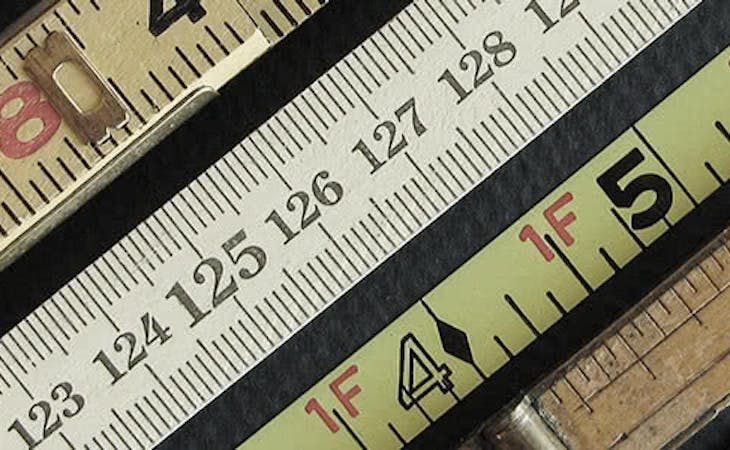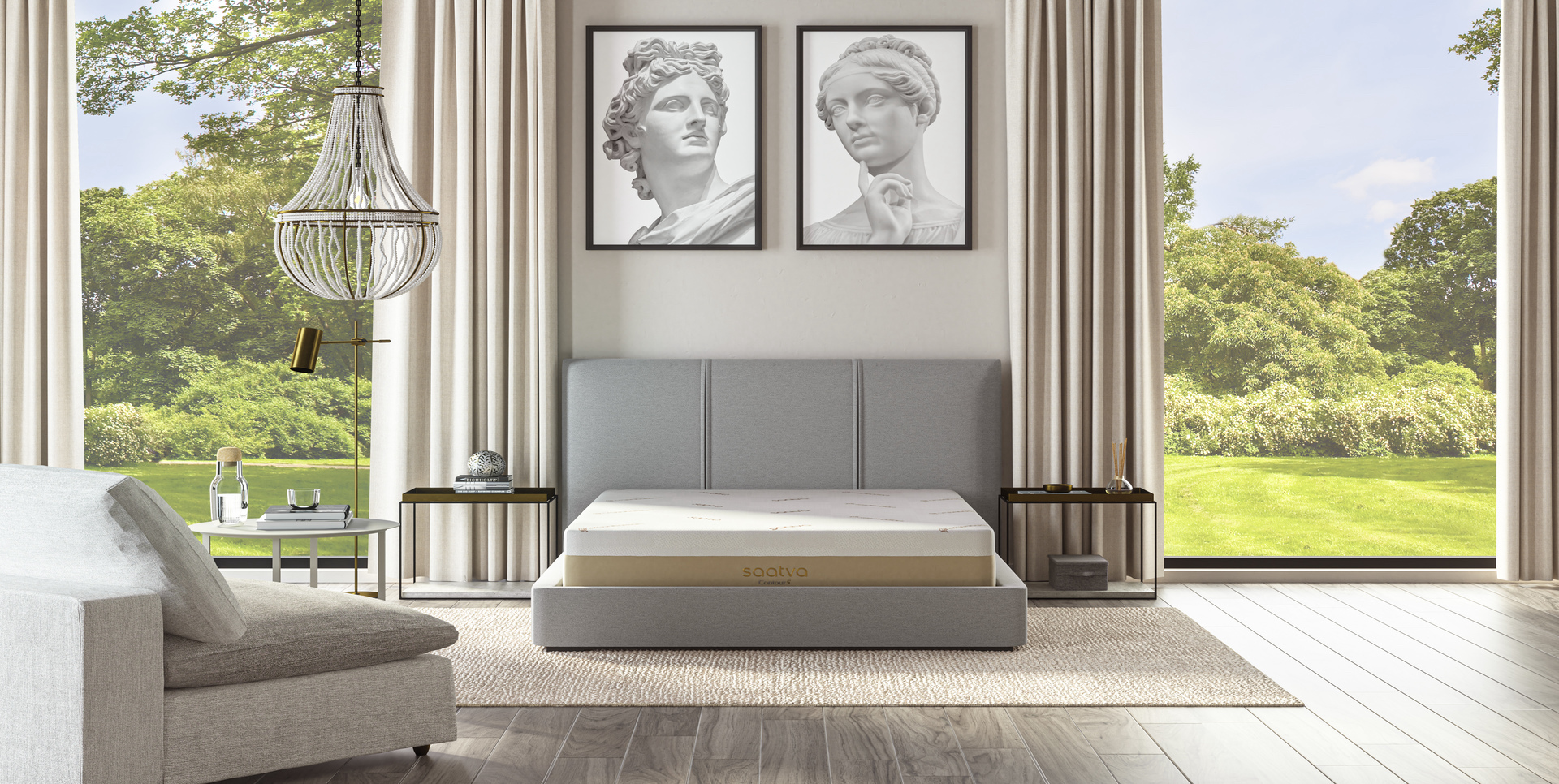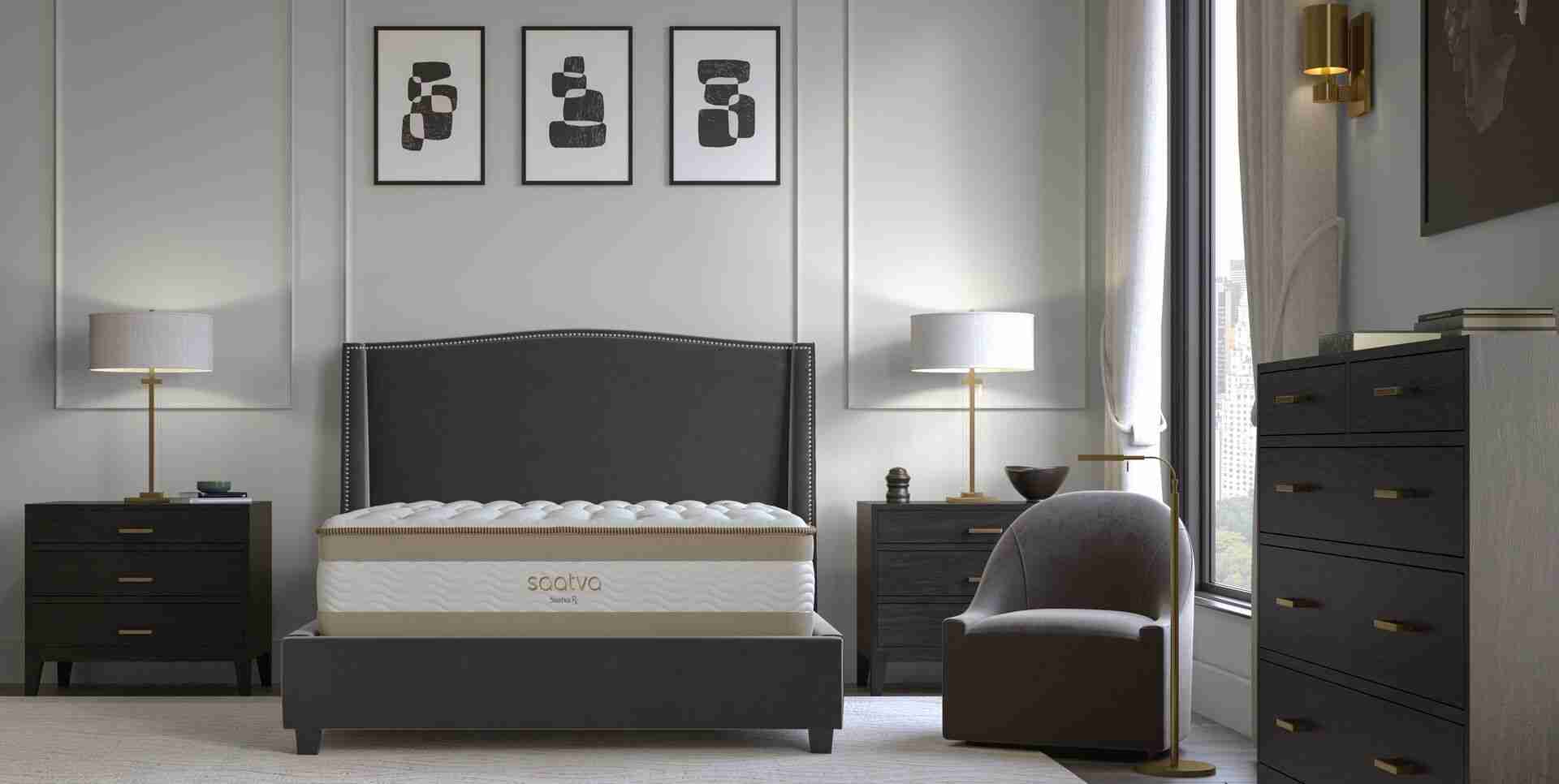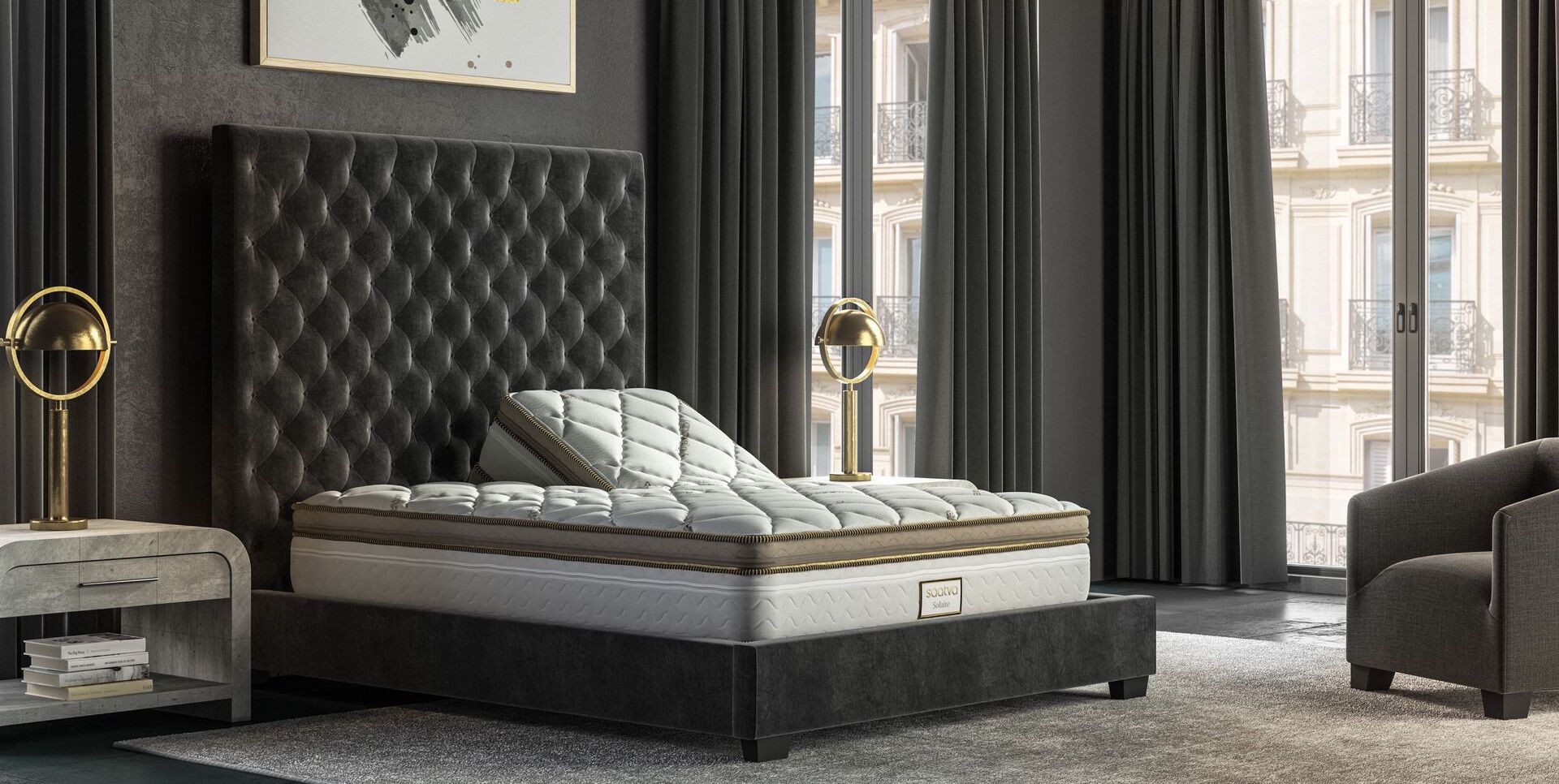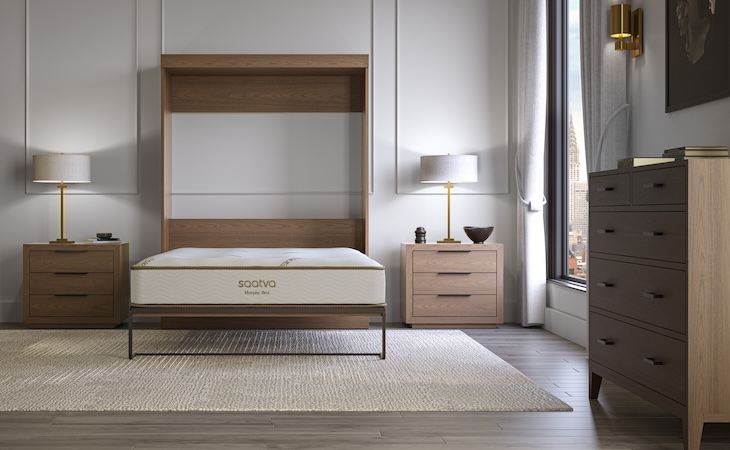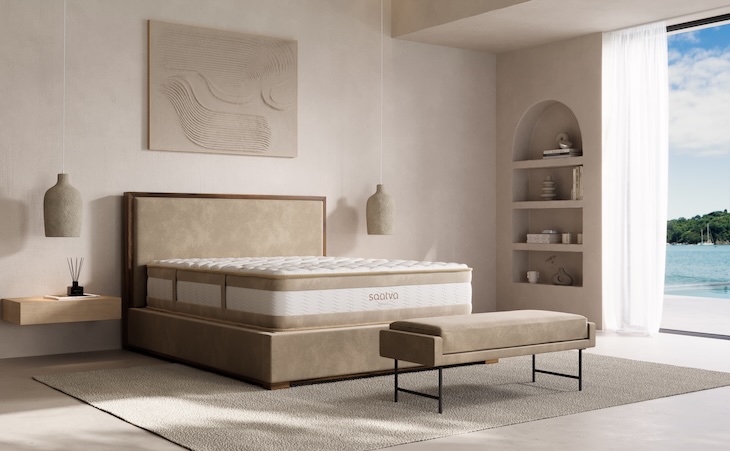Comparing mattress sizes is really about finding the best fit for your situation. Whether you’re looking for the right length and width to fit the dimensions of your guest room or deciding between a king and California king bed for your primary bedroom, we want to make your choices simple and easy.
In addition to sharing a handy mattress sizes chart and showing you the industry standard for bed dimensions, we’ve put together the following comprehensive guide to help you make an informed decision when picking out your new mattress.
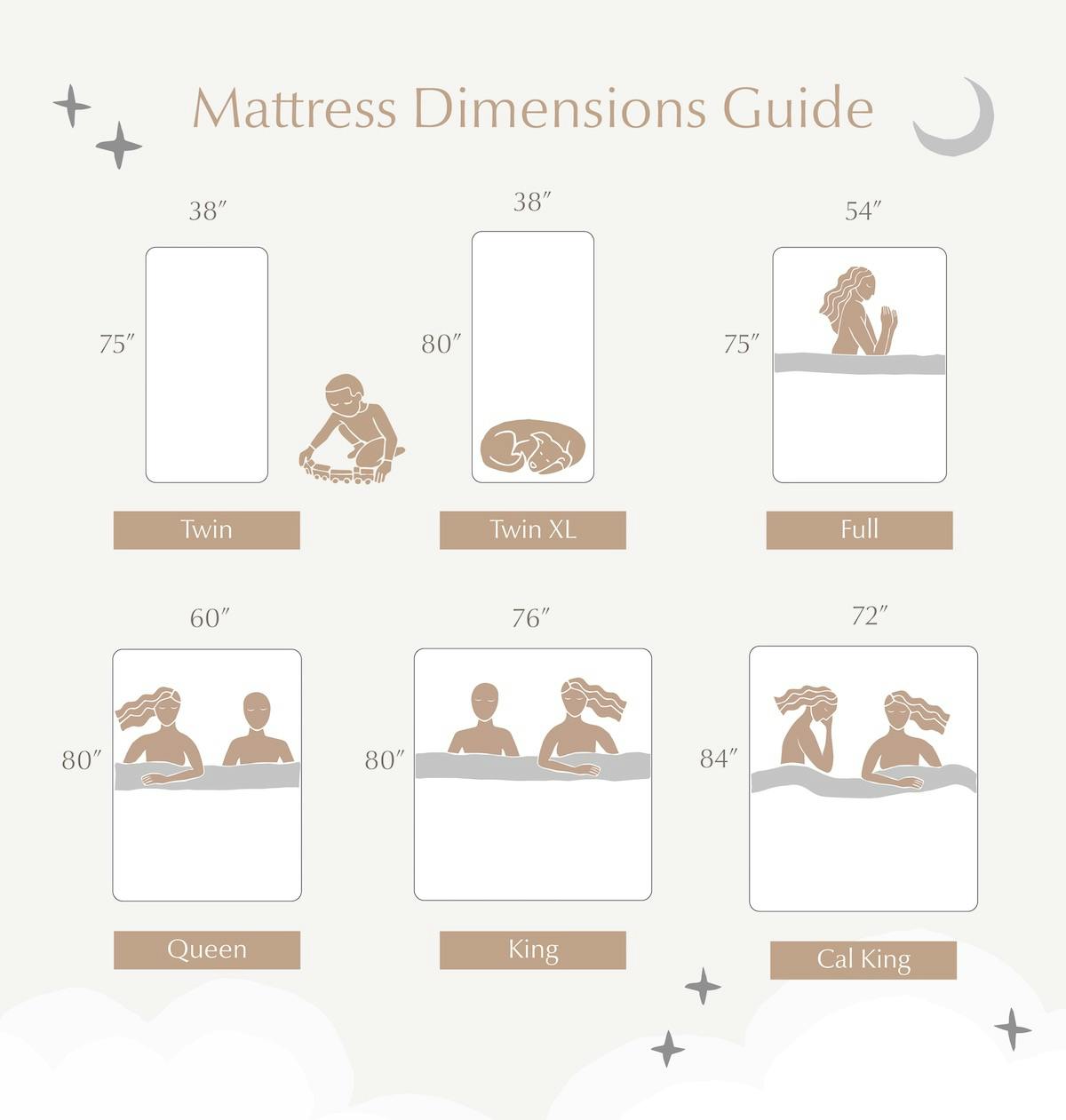
Bed size measurement chart (length x width)
The chart below shows the length and width dimensions of the most popular mattress sizes in both inches and centimeters. This should help you choose your mattress size, but we’ll go into more detail on each size in the subsequent section. (Here’s how to measure a mattress to determine which mattress size is right for you.)
Mattress size Dimensions in inches Dimensions in centimeters California king 72″ x 84″ 183 x 213.5 cm King 76” x 80” 193 x 203.5 cm Queen 60” x 80” 152 x 203.5 cm Full 54” x 75” 134.5 x 190.5 cm Twin XL 38” x 80” 96.5 x 203.5 cm Twin 38” x 75” 965 x 188.0 cm Crib 28” x 52” 71 x 123 cm
Twin bed dimensions
- Twin mattress dimensions: 38” x 75”
- Comfortably fits: 1 person
- Min. recommended room size: 7’ x 10’
- Best for: kids and teens
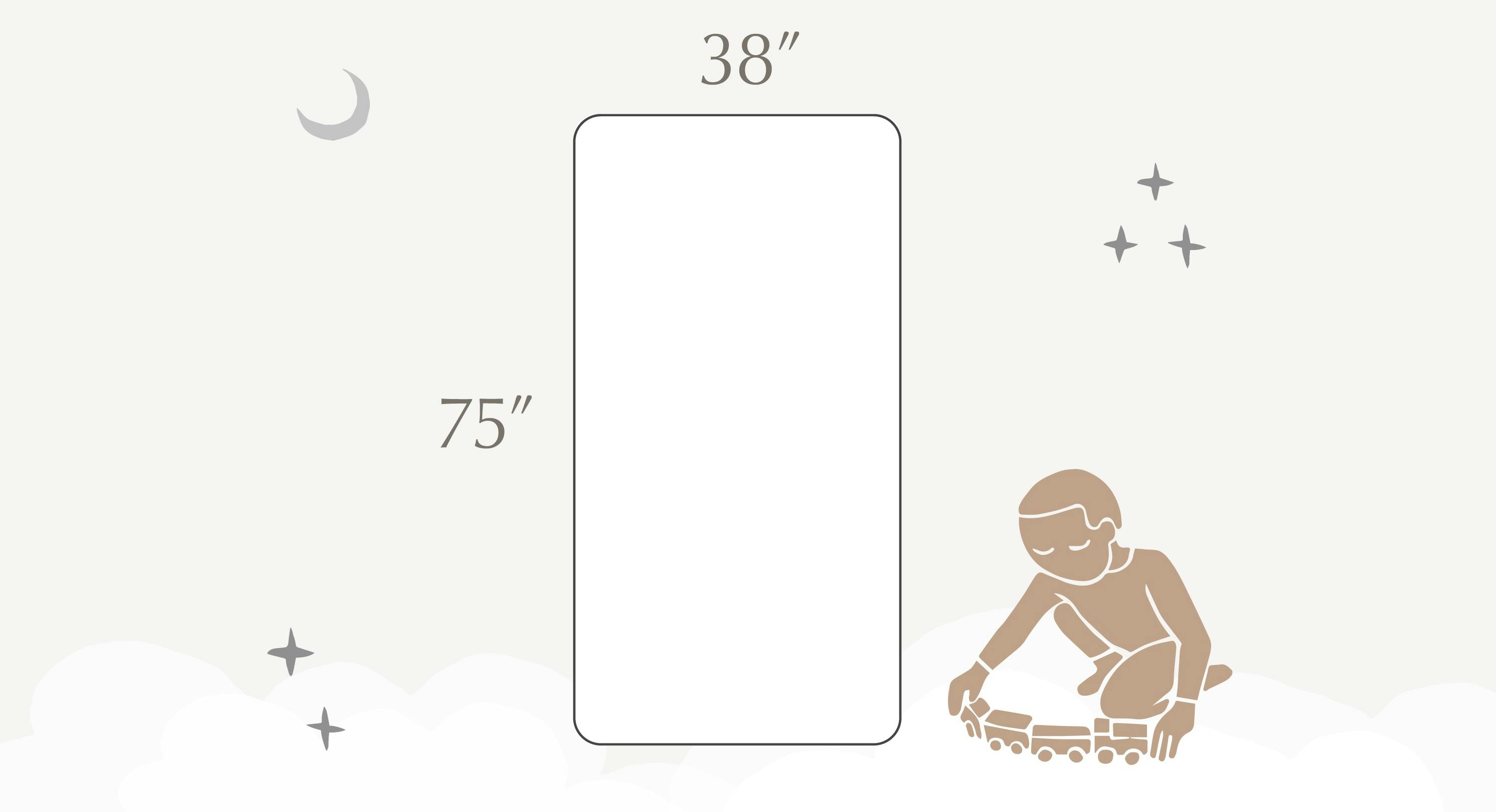
A twin-size bed is the second smallest standard mattress size. It’s ideal for children because it accommodates their growing bodies and fits nicely into kids’ bedrooms.
It’s also suitable for adults who live in studio apartments or smaller rooms and don’t have enough space for bigger mattresses.
If you’re considering a twin mattress for yourself or your child, then check out our detailed guide to twin bed dimensions. Remember, there’s a reason it’s also called a single mattress.
Twin XL bed dimensions
- Twin XL mattress dimensions: 38” x 80”
- Comfortably fits: 1 person
- Min. recommended room size: 7’ x 10’
- Best for: teens, college students, or taller people
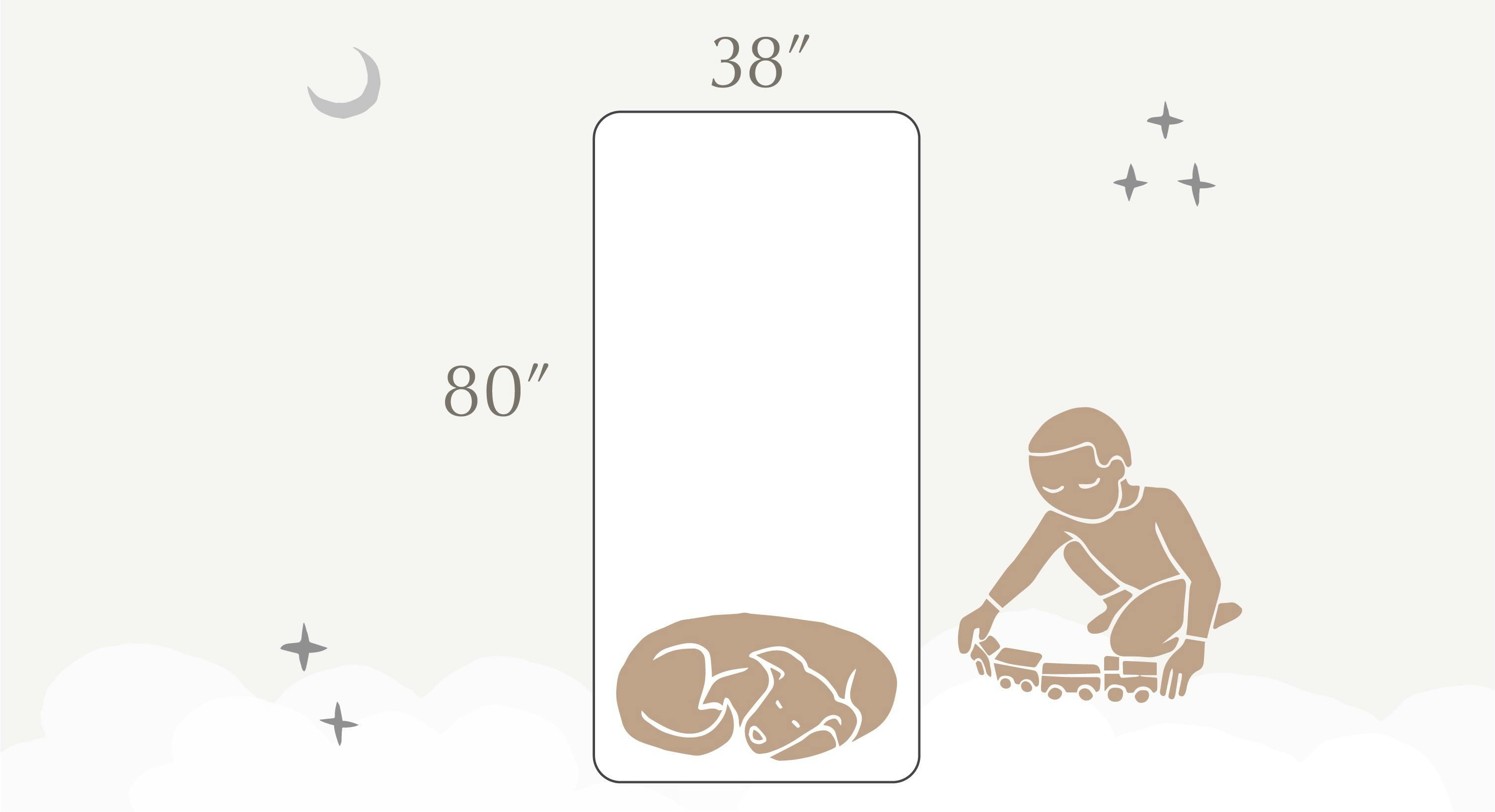
A twin XL size bed is the same width as a standard twin size mattress (38 inches) but 5 inches of extra length, coming in at 80 inches long. It provides enough legroom for anyone up to 6 feet 7 inches tall.
This is the ideal choice for teens or young adults destined to be in the NBA, so they won’t have to worry about their feet hanging off the bed.
The twin XL also makes a usable option for single adults or taller individuals who need to conserve floor space.
It’s often found in college dorm rooms, camps, and other places where there’s not enough room for full or queen beds.
Full bed dimensions
- Full mattress dimensions: 54” x 75”
- Comfortably fits: 1 person
- Min. recommended room size: 10’ x 10’
- Best for: solo sleepers
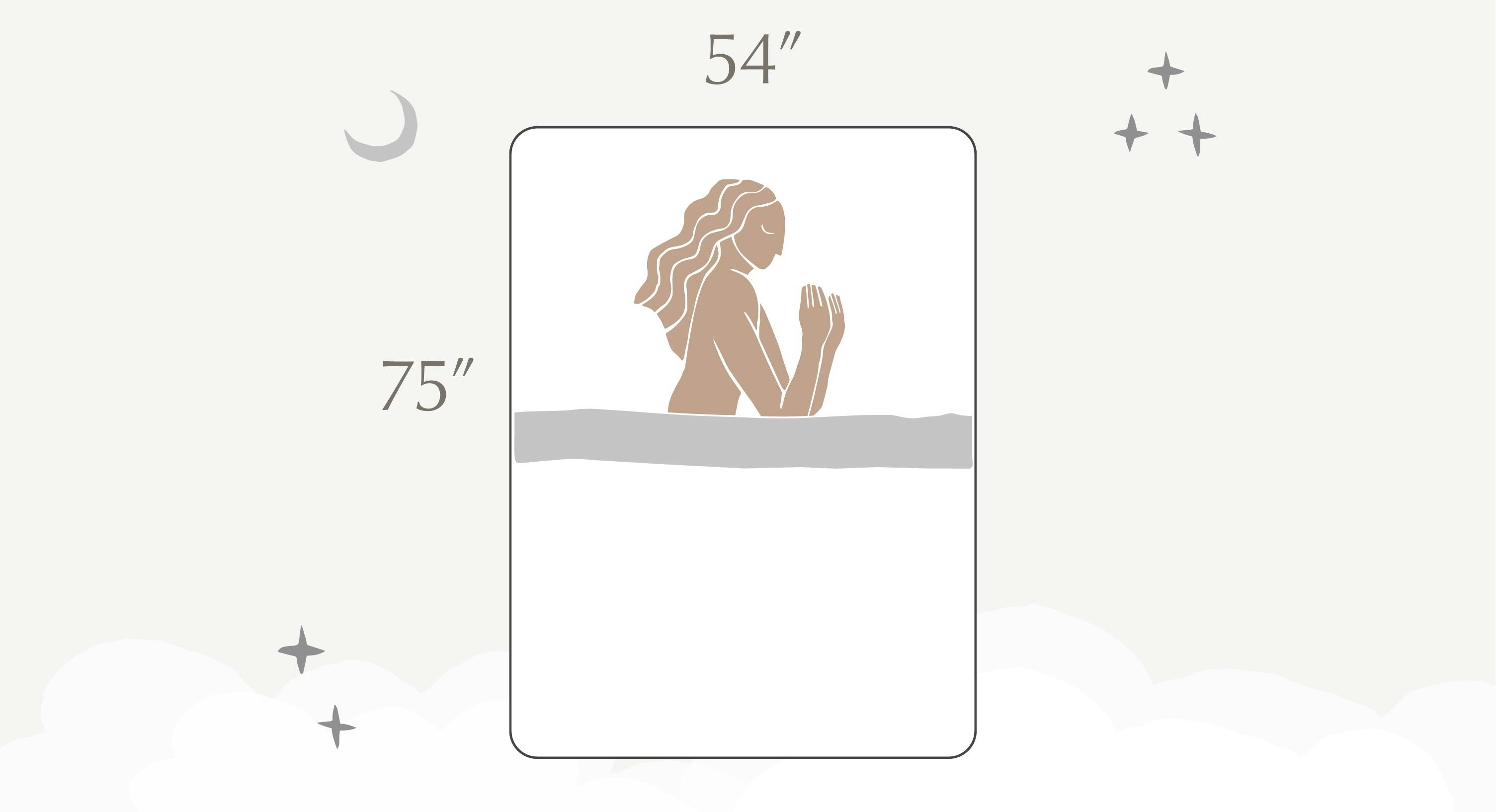
A full mattress, also known as a double bed, offers slightly more room than a twin but still fits well into smaller bedrooms. That means it’s great for growing kids or small- apartment dwellers who sleep solo.
Take a look at our in-depth guide to full bed dimensions for more information on the benefits and drawbacks of double mattresses as well as our guide to full vs. double beds.
Queen bed dimensions
- Queen mattress dimensions: 60” x 80”
- Comfortably fits: 2 people
- Min. recommended room size: 10’ x 10’
- Best for: couples
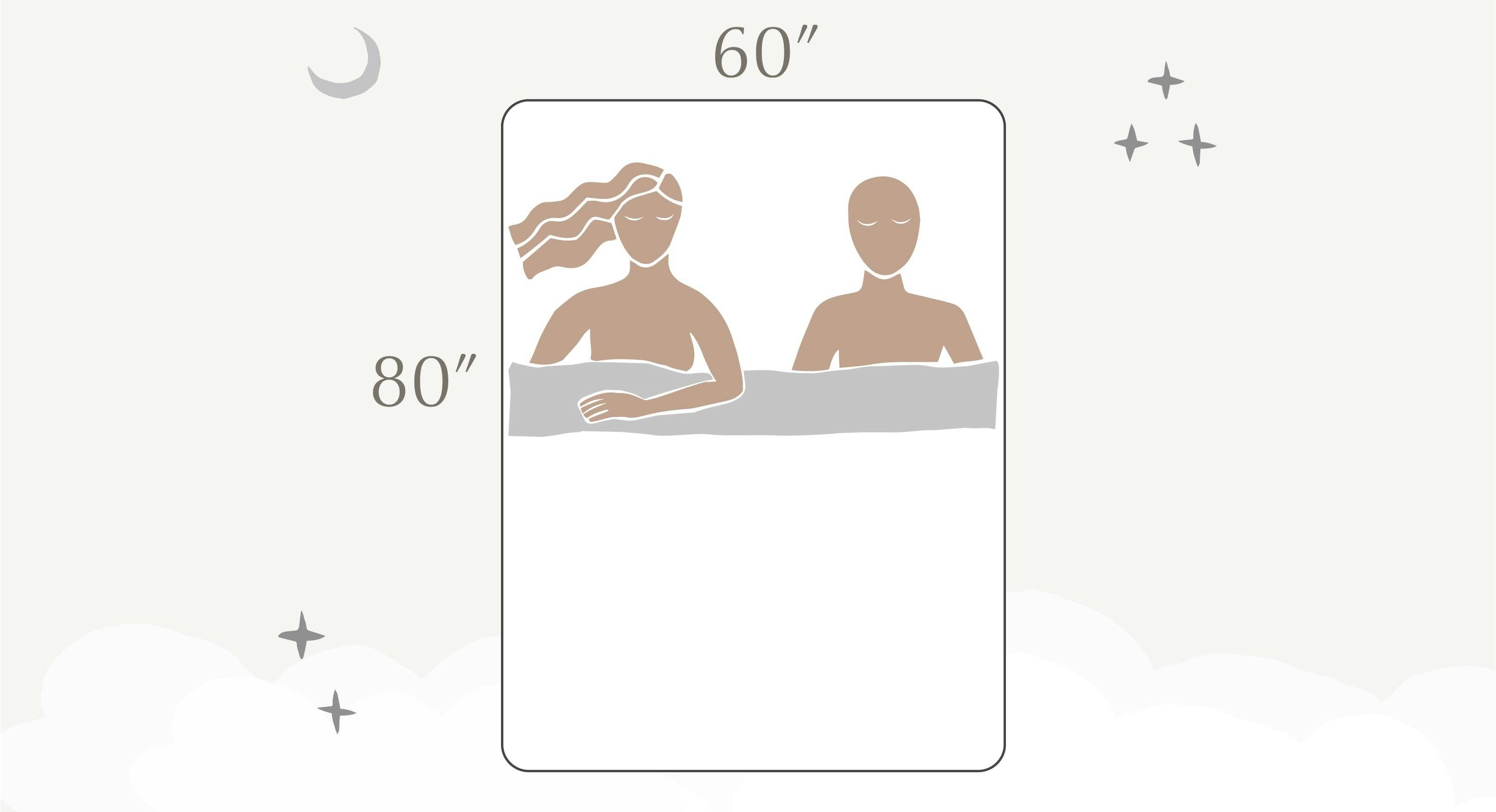
A queen mattress is the most popular of all mattress sizes, and for good reason. It provides generous space for single sleepers yet it’s still roomy enough for two people. Plus, it fits comfortably into most bedrooms.
If you’re thinking about purchasing a queen-size mattress, then check out our guide to queen bed dimensions.
King bed dimensions
- King mattress dimensions: 76” x 80”
- Comfortably fits: 2 people
- Min. recommended room size: 10’ x 10’
- Best for: couples with kids and/or pets
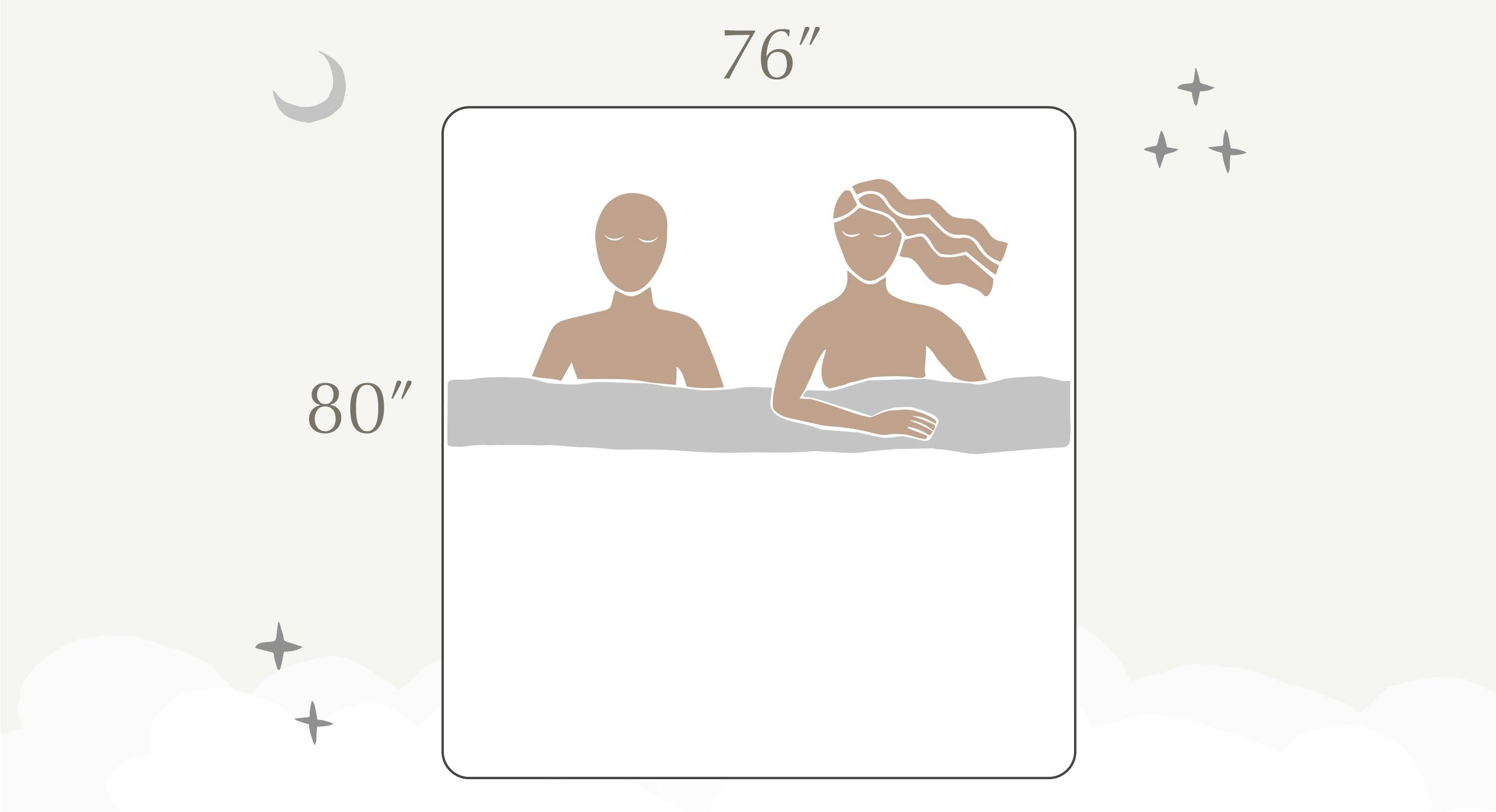
A king mattress is the largest of all bed sizes. It’s an excellent choice for couples, but it’s also the perfect size if you have kids and pets that like to pile into your bed and cuddle. It’ll also help fill up space in a large bedroom.
Read our guide to king bed dimensions to learn about the pros and cons of king sized beds and find tips for determining whether this mattress size is the right one for you.
California king bed dimensions
- California king mattress dimensions: 72” x 84”
- Comfortably fits: 2 people
- Min. recommended room size: 10’ x 10’
- Best for: taller couples
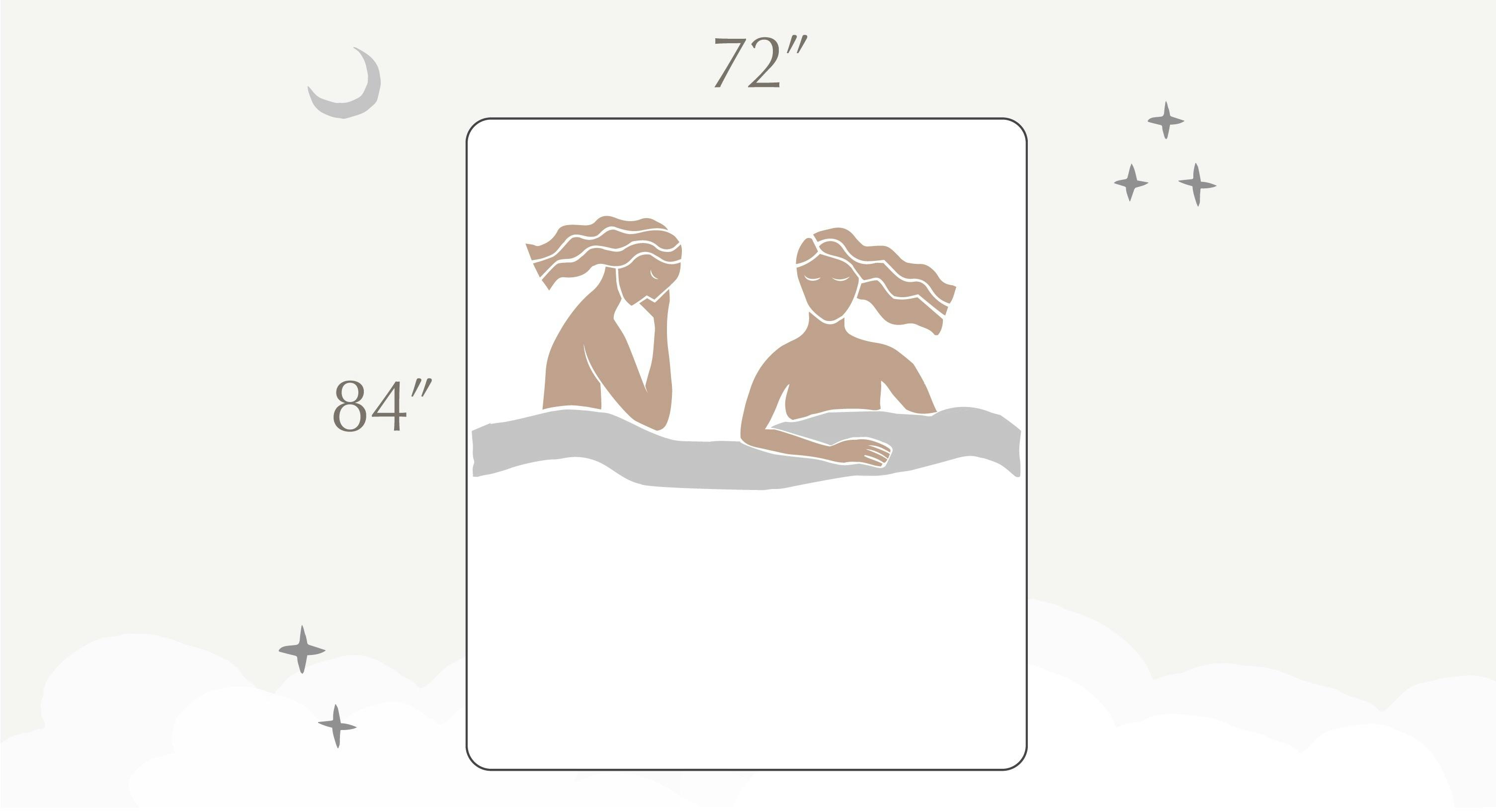
For tall couples (or couples where one partner is really tall), a California king mattress could be the right choice. Unlike a regular king mattress (76 x 80 inches), a California king measures 72 x 84 inches.
So if you don’t mind sacrificing a little width in exchange for an extra 4 inches in length, you’ll find it a much more comfortable setup. (Here are more large bed sizes to know about.)
[Shop California King Mattresses]
Crib bed dimensions
- Crib mattress dimensions: 28” x 52”
- Comfortably fits: 1 person
- Min. recommended room size: 6’ x 10’
- Best for: babies and toddlers only
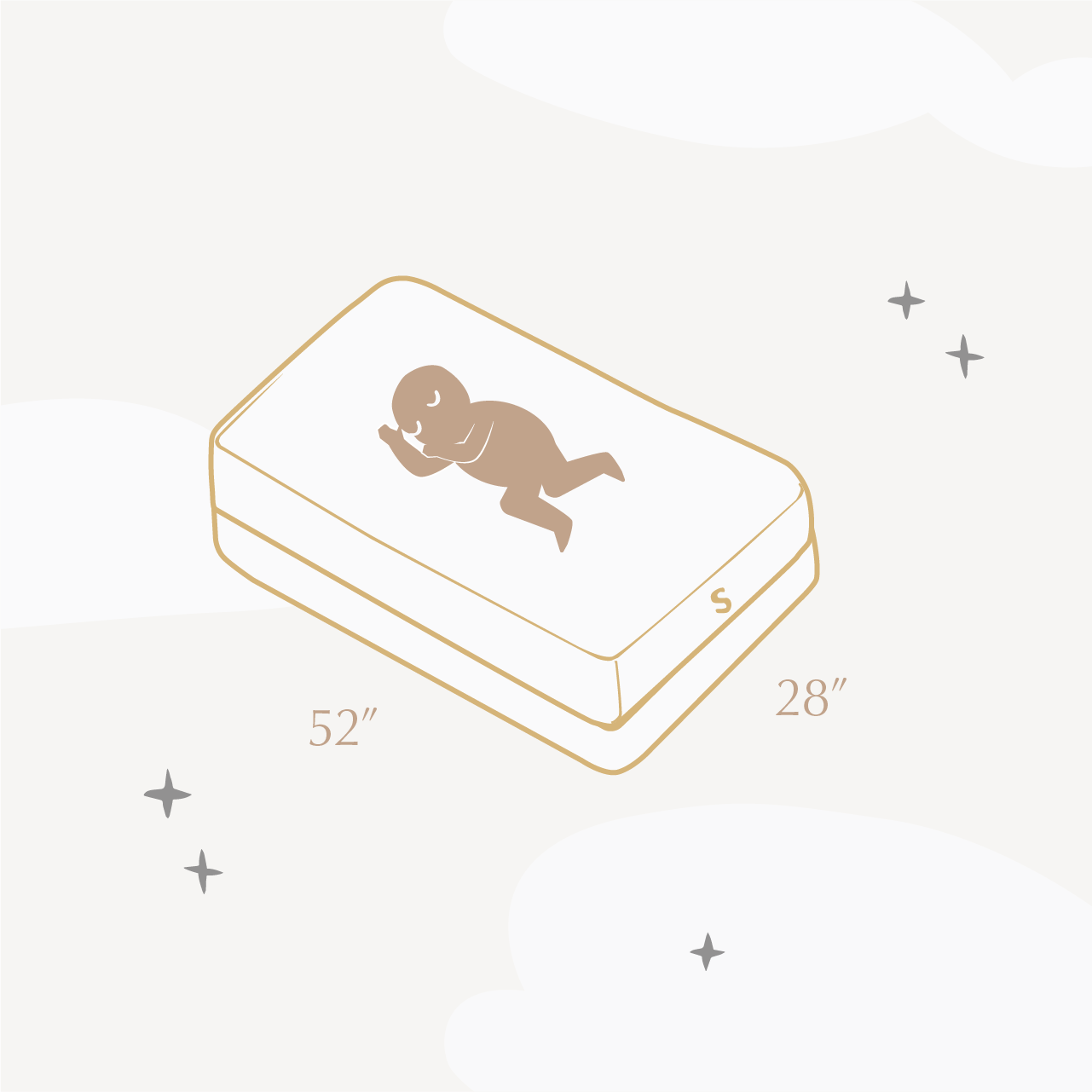
A crib mattress is the smallest standard mattress size. A firm crib mattress is a must-have for a baby to ensure safe and healthy sleep.
If you’re looking for the right sleep surface for your little one, then read our comprehensive guide to crib mattress dimensions.
How to choose your mattress size
There’s a lot to think about when deciding on your mattress size, but often your room size, relationship status, and body size can make the decision for you.
Below is our simple guide on what to consider before making your mattress size decision.
Your body size
If you’re over 6 feet tall, then a twin or full-size mattress may not be long enough to allow you to sleep comfortably. Because these mattress sizes are both only 75 inches long (which translates to 6 feet 2 inches), your feet may dangle over the bed.
If this is the case, consider a twin XL mattress, which is the same width as a standard twin but 5 inches longer.
Queen and king-size mattresses also offer an additional 5 inches in length over twin and full sizes. They’re also wider, making them a better option for couples, anyone who wants extra space to spread out, or those with larger body sizes. Learn about the
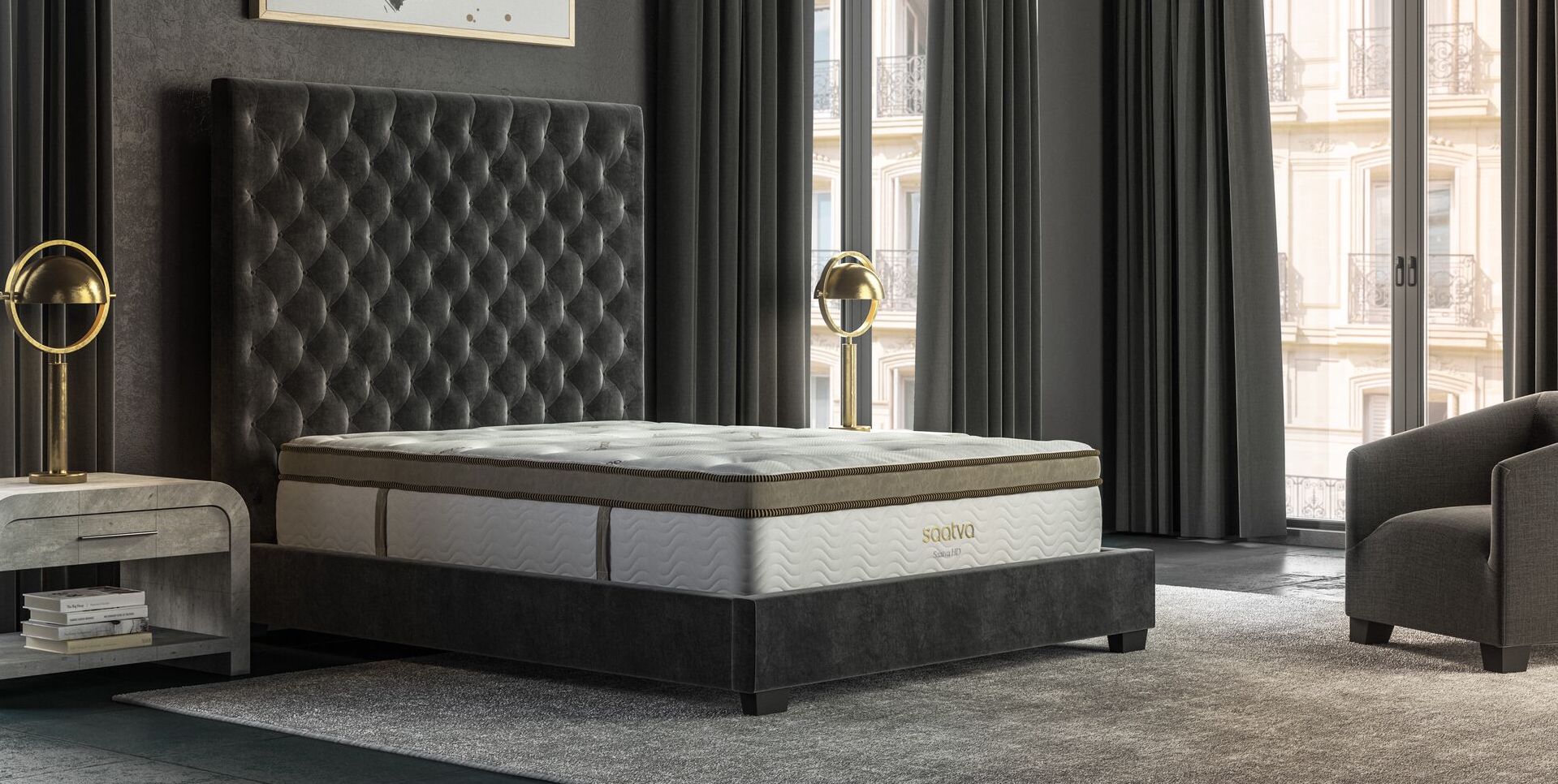
The first luxury hybrid innerspring for bigger bodies
.
Your room size
Smaller mattress sizes, like twins and fulls, fit better into smaller bedrooms. That’s why they’re a good option for kids’ rooms as well as studio apartments.
Twin and twin XL mattresses can fit into bedrooms as small as 7 x 10 feet. Full mattresses can fit into bedrooms as small as 10 x 10 feet.
Queens and kings, on the other hand, fit nicely into larger bedrooms. Queen-size beds can fit into bedrooms as small as 10 x 10 feet, while king-size beds can fit into bedrooms as small as 10 x 12 feet.
Cal kings, which are 4 inches longer and 4 inches narrower than standard kings, can fit into bedrooms as small as 12 x 12 feet.
Your sleep position
If you’re a combination sleeper—someone who switches positions throughout the night—a full-size bed will give you ample room to move around as a solo sleeper.
If you sleep with a partner and either or both of you move around while you sleep, then a queen or king will ensure you won’t disturb each other.
Number of sleepers
Solo sleepers can do well on a full-size bed, while twins and twin XLs are great options for kids and teens.
Queen and king-size beds are your best bet if you sleep with a partner. With a queen-size bed, you get 30 inches of space per person, and with a king-size bed, each of you gets 38 inches of space to yourself.
If you and your partner have different sleep preferences, then think about getting a split king. This setup consists of two twin XLs side by side. With a split king, each of you can choose your preferred mattress firmness.
Your budget
Smaller mattress sizes cost less money than larger ones. For example, a full-size mattress is typically 10%-15% less expensive than a queen-size bed, while a queen-size bed is usually around 25% less expensive than a king-size bed.
Keep in mind that in general, an
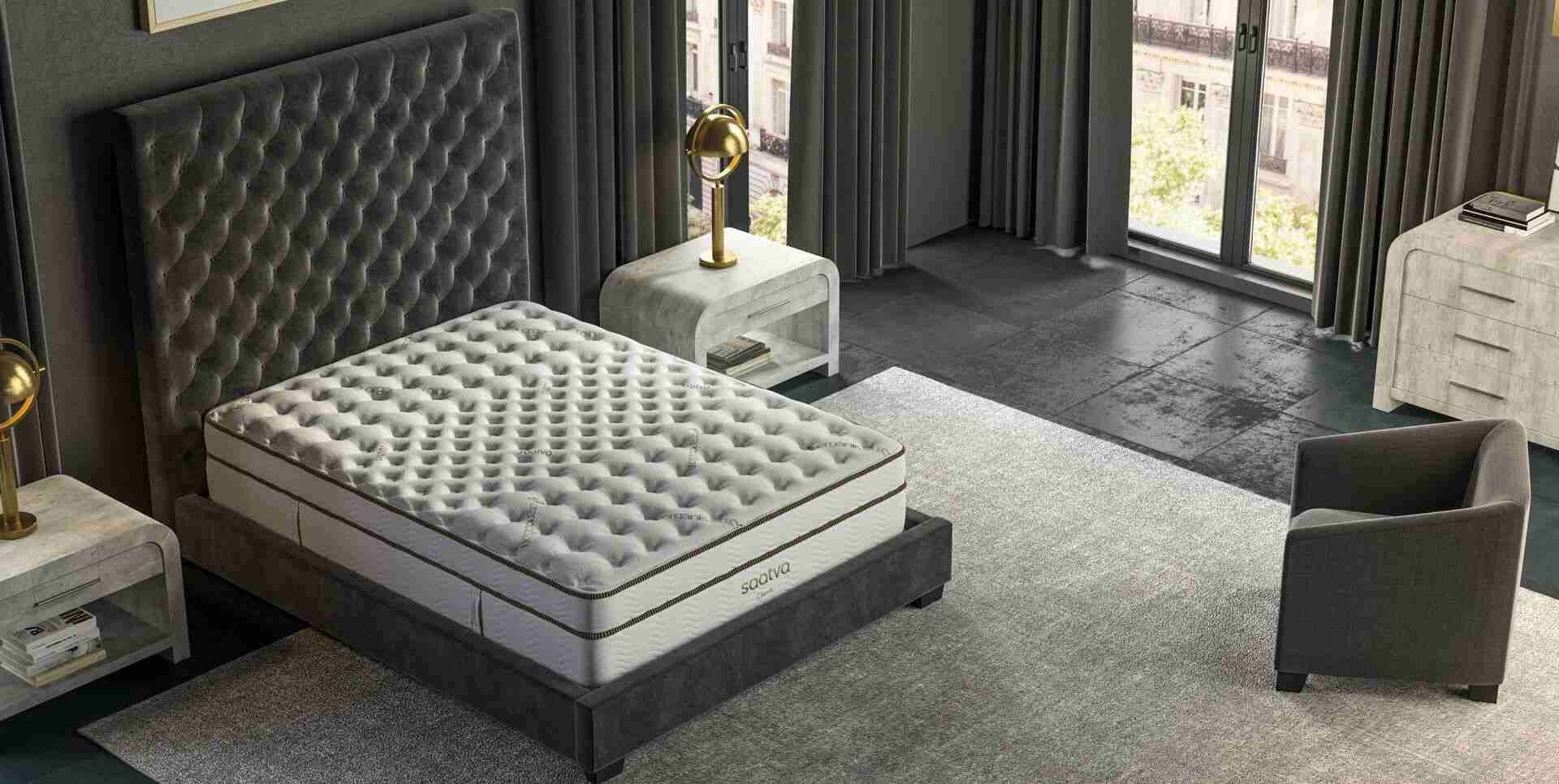
America’s best-selling online luxury innerspring
costs less than a
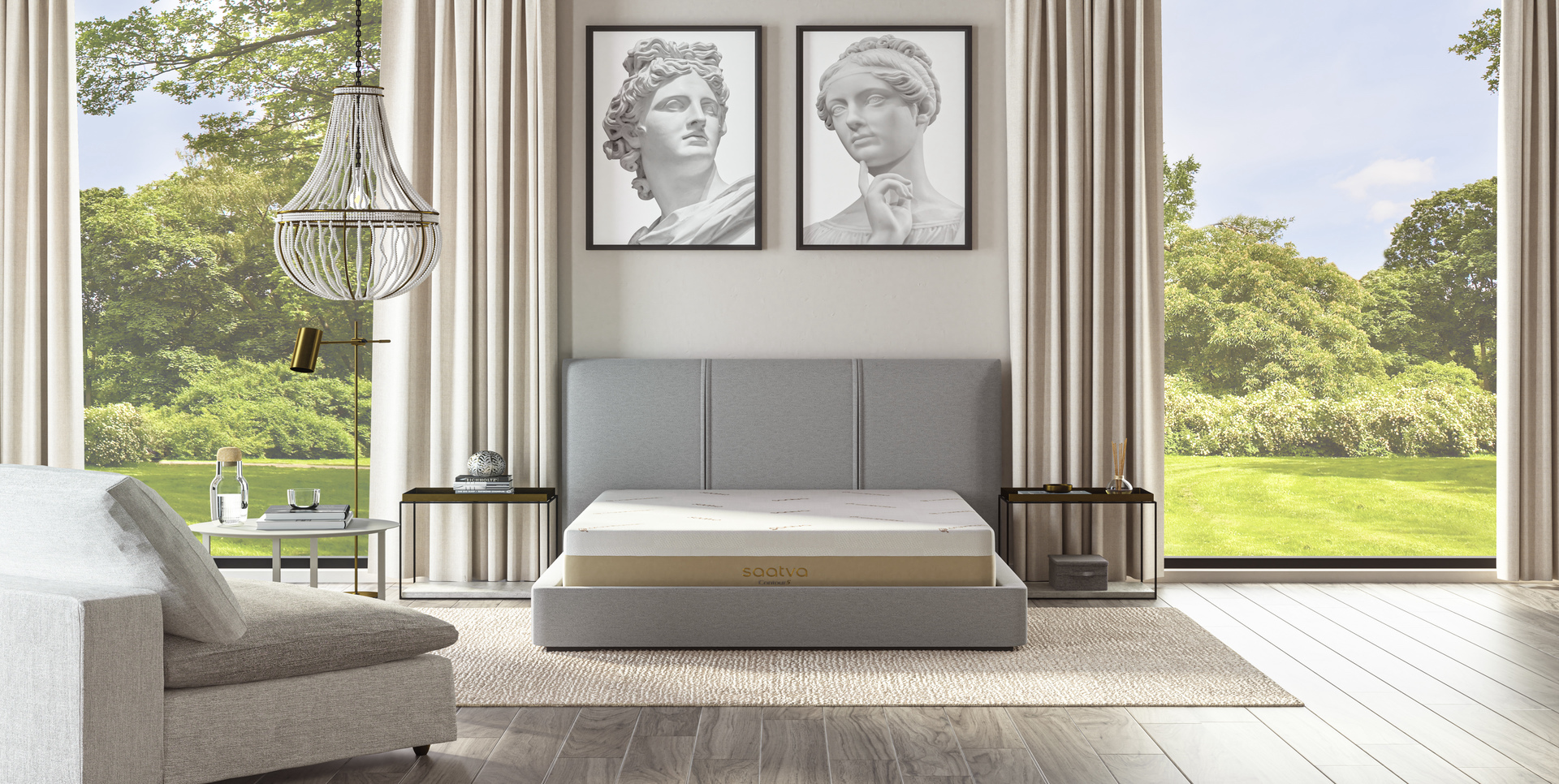
The most luxurious memory foam with adaptive cooling & body-hugging support
or
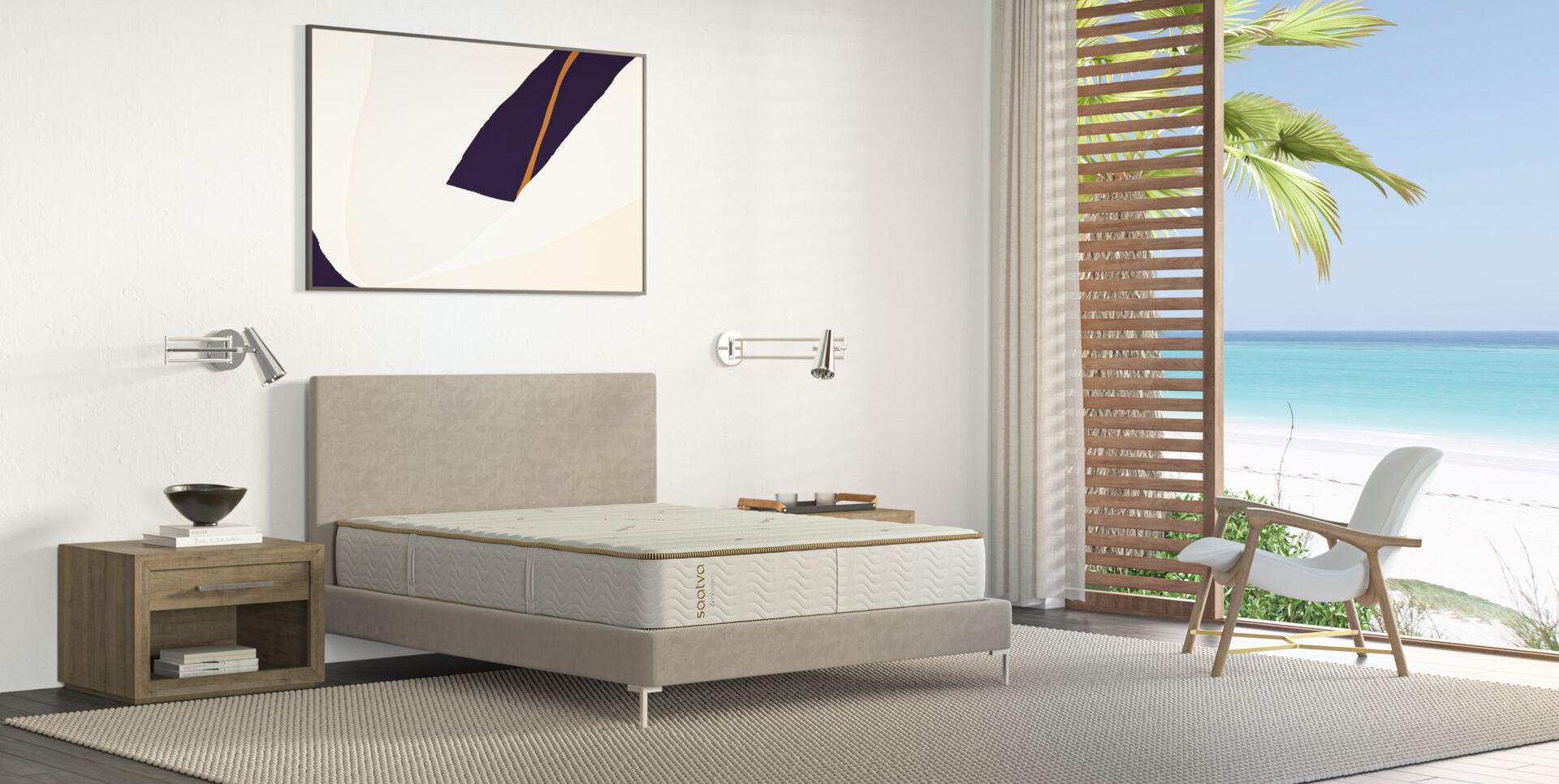
Our dual-sided organic natural latex mattress for buoyant, pressure-relieving comfort
, but each mattress type has its advantages. When picking out a new mattress, choose the size that best fits your sleep needs—and your financial needs.
Mattress size FAQs
Get answers to your most commonly asked questions so you can choose the right mattress size for you.
What’s the most common mattress size?
The queen mattress is the most common size for mattresses. That’s because it’s the ideal choice for many people.
Measuring 60 x 80 inches, a queen-sized bed offers generous space for solo sleepers yet is still roomy enough for two people. It’s also spacious enough for taller sleepers and suitable for bedrooms of many different shapes and sizes.
How should I measure my bedroom to buy a mattress?
Start by using a tape measure to get the dimensions of your entire bedroom (the width, length, and door frame measurements).
Once you’ve determined that a particular bed size will fit inside your bedroom, focus specifically on the dimensions of the wall you plan to set your bed against. Take windows, door frames, furniture, and any other bedroom features into account to ensure your chosen mattress size will fit comfortably.
If you’re going to be using a headboard, you should take that into account too.
Able to move around freely? You’re good to go. Room feel too cramped? Consider sizing down to the next size.
Is there a mattress bigger than a California king?
The largest mattress size is the Alaskan king mattress. It measures 108 x 108 inches (that’s 9 x 9 feet). The Alaskan king is 36 inches wider and 28 inches longer than a standard king mattress.
If you’re over 6 feet 6 inches tall, you’ll appreciate the extra legroom provided by an Alaskan king. To accommodate this mattress size, your bedroom should be at least 16 x 16 feet.
What mattress should I get for a small apartment bedroom or studio apartment?
Twin and full mattresses are both suitable mattress sizes for a small apartment bedroom or studio apartment. A twin mattress measures 38 x 75 inches and can fit comfortably in rooms as small as 7 x 10 feet.
A full mattress is slightly wider, measuring 54 x 75 inches, and can fit comfortably in rooms as small as 10 x 10 feet. Thanks to the added width over a twin, it’s roomier for solo sleepers.
A twin XL, a variation of the standard twin, is commonly used in dorm rooms. As it’s only 38 inches wide, it easily fits in small spaces. But since it’s 5 inches longer than twin and full beds, it’s ideal for tall people.
What mattress size should I get for a guest bedroom?
A queen-size mattress is best for guest bedrooms. Queens measure 60 x 80 inches and can accommodate two adults. They also leave enough space in most rooms for additional furniture, like a bench or chair.
Do mattress lengths and widths have anything to do with thickness?
Mattress length and width aren’t the same as thickness. Mattress thickness refers to the height of a mattress. The average mattress height, or thickness, is 8 to 12 inches. These days, you can also find plenty of 14-, 16-, and even 18-inch mattresses.
A thicker mattress might be right for you if you have a larger body, want to get on and off the bed with ease, or your bed frame or headboard demands it.
Do I need sheets and a comforter that are the same size as my bed?
You should always choose sheets and a
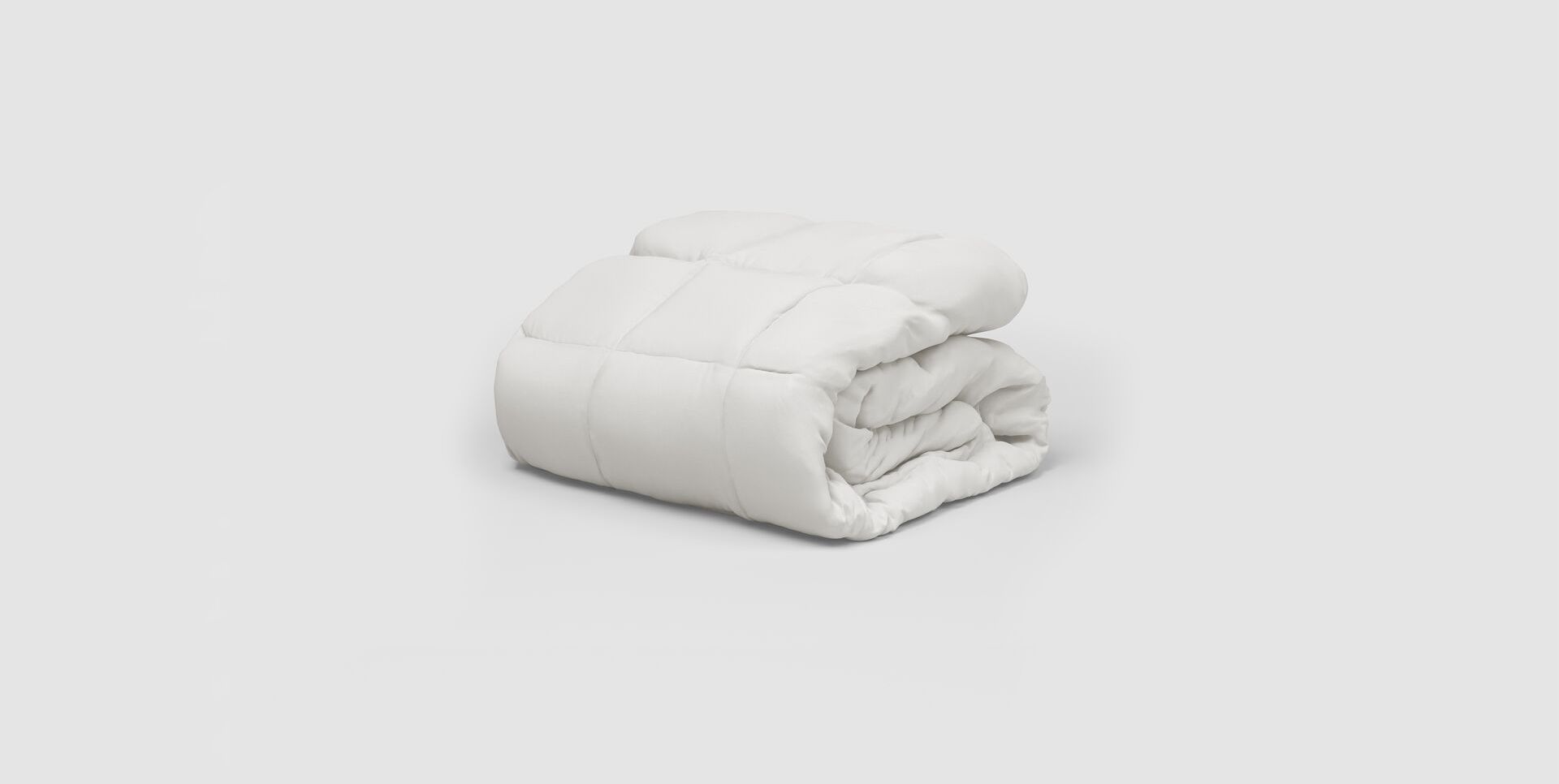
Plush and breathable all-season comforter/duvet insert
designed for your specific mattress size. That way you won’t have to deal with too-small bedding that hangs short or too-large bedding that drapes onto the ground.
You can find sheet sets in every standard mattress size, from twin to California king. Sheet sets include one flat sheet, one fitted sheet, and one or two pillowcases. Sheets will typically be the same dimensions as your mattress size.
When it comes to the fitted sheet specifically, check the depth to make sure you’ll be able to fit it securely around the corners of your mattress. If you have a thick mattress, look for a deep pocket fitted sheet that will accommodate the thickness of your mattress.
Comforters are usually slightly larger than their corresponding mattress sizes.
Comforter sizes are generally in the following range:
- Twin: 66” x 86” to 68” x 88”
- Twin XL: 68” x 90”
- Full: 81” x 86” to 84” x 88”
- Queen: 86” x 96” to 88” x 100”
- King: 102” x 86” to 102” x 88”
- Cal King: 107” x 96” to 110” x 98”
Are bed frame sizes standardized?
Mattress sizes and bed frame sizes are usually the same. However, keep in mind that some bed frames are 2-5 inches larger than the mattress to accommodate a headboard and/or footboard.
Sleigh beds and wide floating platform beds, for example, need more space than standard bed frames. Because of this, it’s always a good idea to measure your bedroom first and double-check the dimensions of the bed frame before buying.
What size mattresses do bunk beds use?
Most bunk beds use two twin mattresses, but there are other options available. Some have a twin up top and a full or queen on the bottom. There are also bunk beds with two double mattresses.
There are others, but those are the most common constructions.
How do you know what size mattress to get?
The right mattress size for you depends on a variety of factors. You’ll want to consider your body size, room size, how many people will be sleeping in the bed, and your budget.
Smaller bed sizes, like twins and fulls, take up less space, which can be great if your bedroom is small. They’re also less pricey than larger mattress sizes. But they don’t fit more than one person—and if you’re on the larger size or you move around while you sleep, you may not be so comfortable even if you sleep alone.
Larger bed sizes, like queens and kings, take up more space and cost more money, but they also offer much more room. If you have a larger bedroom, switch positions while you sleep, sleep with a partner, or have kids and/or pets that like to get into bed with you, then one of these larger mattress sizes may be ideal for you.





